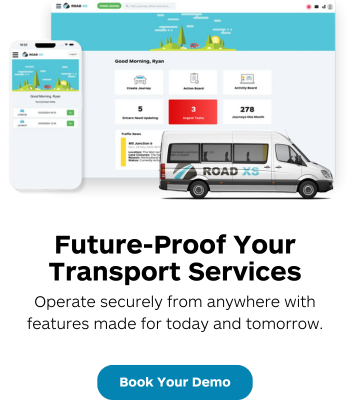As demand for community transport services grows, securing sustainable funding is crucial for operators dedicated to serving vulnerable and remote populations.
One valuable funding stream is available through the NHS Integrated Care Boards (ICBs). These boards support community-led health initiatives, including transportation, to ensure equitable access to healthcare services.
Here’s a guide on how community transport operators can navigate the application process and make a compelling case for ICB funding.
1) Understand NHS Integrated Care Boards (ICBs) and Their Mission
ICBs are responsible for coordinating health services across England. They focus on enhancing patient care by integrating healthcare, social care, and community services.
Each ICB operates locally, enabling tailored solutions that reflect the specific needs of communities.
Community transport aligns with ICB goals by addressing barriers to healthcare access, reducing missed appointments, and supporting patients with mobility challenges.
ICB funding for transport is particularly relevant for services transporting patients to non-emergency medical appointments or providing routine travel for elderly or disabled people to healthcare facilities.
2) Identify Funding Opportunities Through Your Local ICB
Funding availability varies across ICBs, depending on local priorities and health challenges.
Research your local ICB’s health strategies, funding priorities, and annual budget allocations to identify where community transport may fit into their funding objectives. Often, funding can be directed towards:
- Transport for primary and secondary care appointments.
- Non-emergency patient transport services (NEPTS).
- Initiatives to reduce healthcare inequalities by improving access for rural or remote areas.
Consult with ICB representatives to understand their requirements and priorities, especially around projects focusing on preventive care and social determinants of health.
3) Build Partnerships With Local Health and Social Care Providers
Collaboration is key to securing ICB funding. Establish partnerships with local health providers, clinics, social services, and community organisations that already have relationships with the ICB.
Jointly presenting a proposal for integrated services that reduce hospital admissions and support preventative care can strengthen your case.
Many ICBs prefer projects that reflect a multi-stakeholder approach, where community transport operators work closely with health and social care providers to address patients’ broader needs.
4) Demonstrate the Impact of Your Service on Health Outcomes
To make a compelling case, it’s essential to demonstrate how your transport service positively affects health outcomes. Key metrics include:
- Reduction in missed medical appointments: Highlight data showing how access to transport services reduces missed appointments, improving continuity of care.
- Patient satisfaction and comfort: Gather testimonials and feedback from patients who use your service for healthcare access. Patient stories can be influential in illustrating the real-world impact of your service.
- Cost savings: ICBs are always interested in cost efficiency. Emphasise any evidence showing that your services reduce the burden on emergency services, cut down on hospital stays, or improve early intervention rates.
5) Draft a Comprehensive Funding Proposal
A clear, well-structured funding proposal is critical. Outline your project objectives; the population served, and the direct benefits of your transport services on healthcare access. Key sections to include:
- Executive Summary: Briefly summarise the purpose of your proposal and how it aligns with ICB’s goals.
- Project Description: Detail your service and how it will operate to fulfil local healthcare needs.
- Target Demographic: Describe the specific groups you serve (e.g., elderly, disabled, rural populations) and their needs.
- Budget and Financial Breakdown: Provide a transparent budget that explains how funds will be allocated. Include projected costs for vehicle maintenance, staffing, fuel, and other operational needs.
- Monitoring and Evaluation: Explain how you plan to measure the success of the funded project. This could include patient surveys, appointment attendance rates, or partnerships with local clinics.
6) Highlight the Social Value and Long-Term Sustainability of Your Service
Many ICBs look for projects that offer long-term social benefits beyond immediate healthcare outcomes. Community transport often serves as a lifeline for isolated individuals, fostering social connections and supporting mental health.
Emphasise the social value of your service and any plans for sustainability beyond the initial funding period.
Consider creating a phased funding model that shows ICBs how your service could become self-sustaining or supplemented by other community funding sources.
A sustainable model might include a partnership with local councils or other grants that can support your service beyond the initial ICB funding.
7) Stay Informed About ICB Policy Changes and Funding Cycles
ICB funding allocations and priorities can change, so stay updated on policy changes, annual reports, and funding cycle announcements.
Many community transport operators find success by timing their applications with new budget cycles or aligning proposals with recent ICB focus areas.
Attend ICB meetings or community health forums to stay in the loop and build relationships with decision-makers.
Final Thoughts
Securing funding from NHS Integrated Care Boards can be transformative for community transport operators, enabling them to expand services and support more needy individuals.
Aligning your services with ICB priorities, demonstrating clear health benefits, and building solid partnerships can improve your chances of receiving this essential funding.
Community transport plays an essential role in creating accessible, equitable healthcare. Operators can unlock ICB funding to provide invaluable community services with the right approach.


